*Editor’s note: This article is not intended to take a political or theological stance on gender and sexuality, but to share the experiences of students connected to Prism. The Clarion chose to grant anonymity to minimize harm, and anonymous students’ stories have been verified by multiple sources.
Sarah Nienhaus remembers lying in her bed in Lissner and crying out of loneliness. Not once, but many nights. Typically, once the lights were off, Nienhaus would curl up in a ball under her pink comforter so her roommate wouldn’t hear. She would hug Pinky — her pink cat stuffed animal from childhood — wishing she had just one queer friend on campus. Someone who could understand her.
Nienhaus, a junior philosophy major, didn’t know she was lesbian until she was 20 years old. After discovering this part of her identity, she yearned for a community where she could explore it more. But she didn’t think that was possible at Bethel.
Now, Nienhaus is a member of Prism.
Bethel’s website describes Prism as a “spiritual formation group designed to be a safe place for students who identify as LGBTQ+ and for students processing their gender or sexual identity in some way.” Since its creation in 2018, Prism has grown. In 2019 a dozen students were members, with five to seven consistently attending meetings. This year, 10 to 15 students regularly attend, with about 30 people on the mailing list. Prism’s growth illustrates its effectiveness in providing community for students who haven’t found it elsewhere on campus.
Meeting times, locations and members are kept secret so that students feel comfortable attending. Even though some members, like Nienhaus, are publicly out, others aren’t. Three students who agreed to be interviewed for this story asked to remain anonymous because they are either not out or fear retaliation in the form of harassment from other students. One of the student leaders asked to remain anonymous because their family does not know they identify as LGBTQ+ or is a member of the group.
“You don’t have to be out and proud,” the student leader said. “You can be questioning and unsure, and not know what queerness means for your faith and you can still be welcome.”
They say that while the makeup of Prism holds many different sexual and gender identities, it also holds space for theological diversity. Some people are devout Christians, while others may identify as atheist, agnostic or just feel like they are questioning where they fit in God’s kingdom. There is also a range of denominations: Lutheran, Catholic, non-denominational. Some students may come from affirming churches and supportive families, while others don’t.
The anonymous student leader says Prism provides enough space for all these people.
—
Nienhaus remembers seeing posters for Prism in the stairwells and finding it odd — where did it fit into the Christian college Nienhaus knew? The one where she signed the covenant didn’t seem to have any crossover between queer identities and Christianity.
Nienhaus didn’t think much of the group until a friend brought it up to her in class, asking if she was queer and wanted to come to a meeting.
She attended a few meetings at the end of her sophomore year, but wasn’t consistently involved. This year, Nienhaus attended Prism’s first meeting in September and has been at every meeting since.
Campus Pastor for Spiritual Formation and Care Matt Runion helps facilitate and provide pastoral guidance for Prism, along with Assistant Professor of Psychology Rachel Anderson, the group’s faculty sponsor.
Runion describes Prism as a “spiritual formation community where students can belong.”
Prism’s goal is not to make a theological statement or change the covenant. It’s not conversion therapy, and it’s not a space to ignore the covenant, which is based off of Bethel’s foundation on a historic, biblical interpretation of scripture that supports monogamous, heterosexual marriage between a man and woman. Prism is a space for students to have a sense of community and wrestle with questions of identity, faith and relationships.
“The Jesus that I know is someone who goes into the margins, to the people who don’t have acceptance, to the people who aren’t in the majority,” Anderson said. “I feel like to really show and demonstrate Jesus’ love, it means to include all people, regardless of sexuality.”
Runion similarly aims to emphasize Jesus’ example of love.
“We want to have a posture that’s what we think is Christ-like toward students to create this space where they can be reminded of God’s limitless love for them,” Runion said.
Students interviewed for this story described Anderson and Runion as respectful and understanding. One student said Runion “shows up with so much grace.” He often helps facilitate meeting conversations and incorporate spiritual practices. In their meetings, they may practice breath prayers one week, Lectio Divina another and contemplative prayer another.
Runion’s ultimate goal for every student, whether in Prism or not, is that they meet, know and follow Jesus.
—

Senior missional ministries major Andrew Hansen knew he was gay in middle school. He became a Christian in ninth grade. For Hansen, those parts of his identity couldn’t coexist. Within his family and his church community, he thought it was clear gay people were not welcome.
So, he “un-came out” to all of his friends, started dating women and tried to ignore that part of himself.
Although he describes himself as happy during high school and early college, Hansen looks back at this time seeing identity conflict and sadness surrounding his sexuality. It was always something he was trying to hide.
What if people see me for who I actually am? What if people notice? What if I’m not able to keep this a secret?
“I believe the Lord was really patient and really faithful with me and provided joy even when there were really hard inner battles,” Hansen said.
It wasn’t until his junior year of college, last year, when Hansen couldn’t handle his inner struggle. He knew in his heart that he was gay. Theologically, he was convicted to never act on this desire. However, at the beginning of summer 2023, a close spiritual mentor gave him a copy of the book “Torn” by Justin Lee. The memoir follows Lee’s faith and sexuality journey coming from a non-affirming to an affirming perspective.
“It was like reading pages out of my own life,” Hansen said.
As a second-year resident assistant in Getsch Hall and a student chaplain in the Christian Formation office with an affirming view of homosexuality, Hansen wondered how his identity would fit into his roles at Bethel. Returning to campus in fall 2023, Hansen started to tell his close friends. He has attended Prism a few times, but does not attend regularly. Already immersed in many communities on campus, he wasn’t looking for a new one. Hansen was busy and connected enough, but still questioned how his sexuality would inform these roles and his interactions with others.
“I think for most people it’s the fact that you may be the first gay person that they’ve ever met and that they’ve ever known personally,” Hansen said.
For some, he explains that he is also the first openly gay person they know who loves Jesus.
In fact, Hansen wants to pursue ministry full time. Hansen has been accepted into Duke University Divinity School. After deferring for a year to save money and gain more experience working in ministry, Hansen hopes to get his Master of Divinity and become a pastor.
“I’ve always loved walking alongside people in their faith, and I think pastoral ministry is a really unique opportunity to help people walk through their lives and realize the reality of Christ with them and Christ before them,” Hansen said.
Hansen has been more open with his sexuality as he continues to walk through his faith journey alongside his peers. He has told his close friends and stopped trying to date women. Although this has mainly been a positive experience, Hansen doesn’t want to diminish how hard it can be on a daily basis. Classmates ask his friends about his sexuality, and some will share their opinions with him on the subject unsolicited.
Frustrations like these are often brought up in Prism, allowing students to relate over struggles about being queer on campus.
Like Hansen, Nienhaus no longer keeps her sexual identity a secret, but that openness still feels new. She has been publicly out since February 2024, when she came out in an Instagram post. Since then she has lost followers, although she doesn’t know how many of them are Bethel students.
“There’s still that level of fear and frustration,” Nienhaus said. “Kind of a disappointment of, I’m a human, and I used to be your friend. We used to be friends and now you decide to unfollow me.”
She understands how difficult it can be to come out, asking the same questions as Hansen:
What if this doesn’t go well? What if people won’t accept me? Or even if they do, will they treat me differently?
Nienhaus’ friend reassured her that she would be welcomed when she wanted to attend her first meeting. Even so, Nienhaus showed up late to her first meeting because she was so stressed. Should I go? Should I not go? She ended up going, and everyone was excited to see her.
While sitting in a circle on the floor, members went around sharing their names, pronouns, how they identify and answering an icebreaker question.
It was snowing outside as winter stretched into March, but Runion brought snacks, and Nienhaus felt at ease. That meeting was spent discussing family interactions — the topic changes week to week.
How important is your label to you? What gender is God? How can we prepare and support each other to go home to our families over Thanksgiving break?
Aside from her introduction, Nienhaus didn’t say a word.
“Even though I hadn’t contributed to the discussion, I felt so heard and seen and valued in that group,” Nienhaus said. “I walked into a room at my Christian university that was just accepting of all things, and I was like, ‘This is unreal.’”
This sense of belonging is why Nienhaus continually shows up to meetings. After graduation, Nienhaus wants to work at a non-profit that supports queer youth and helps them feel that same sense of belonging she has found in Prism. She wants to help them realize that they are not a mistake. They are loved, and they are valued.







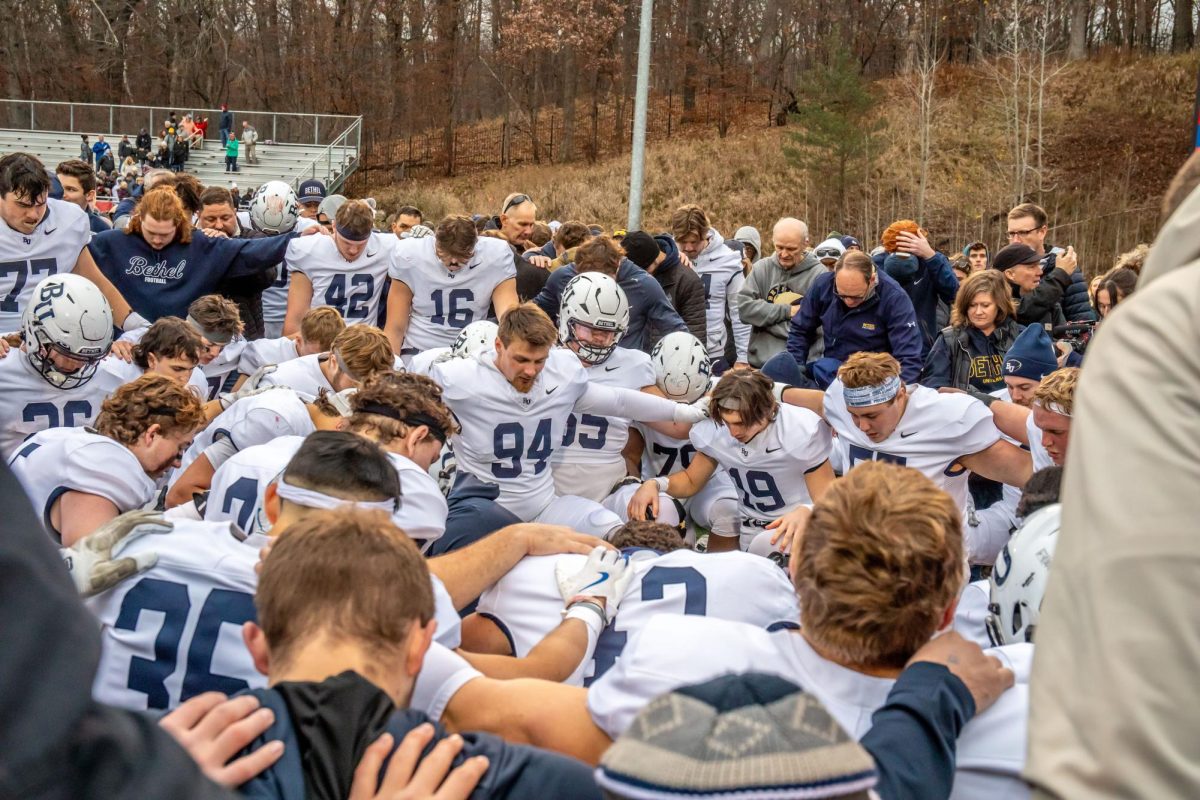


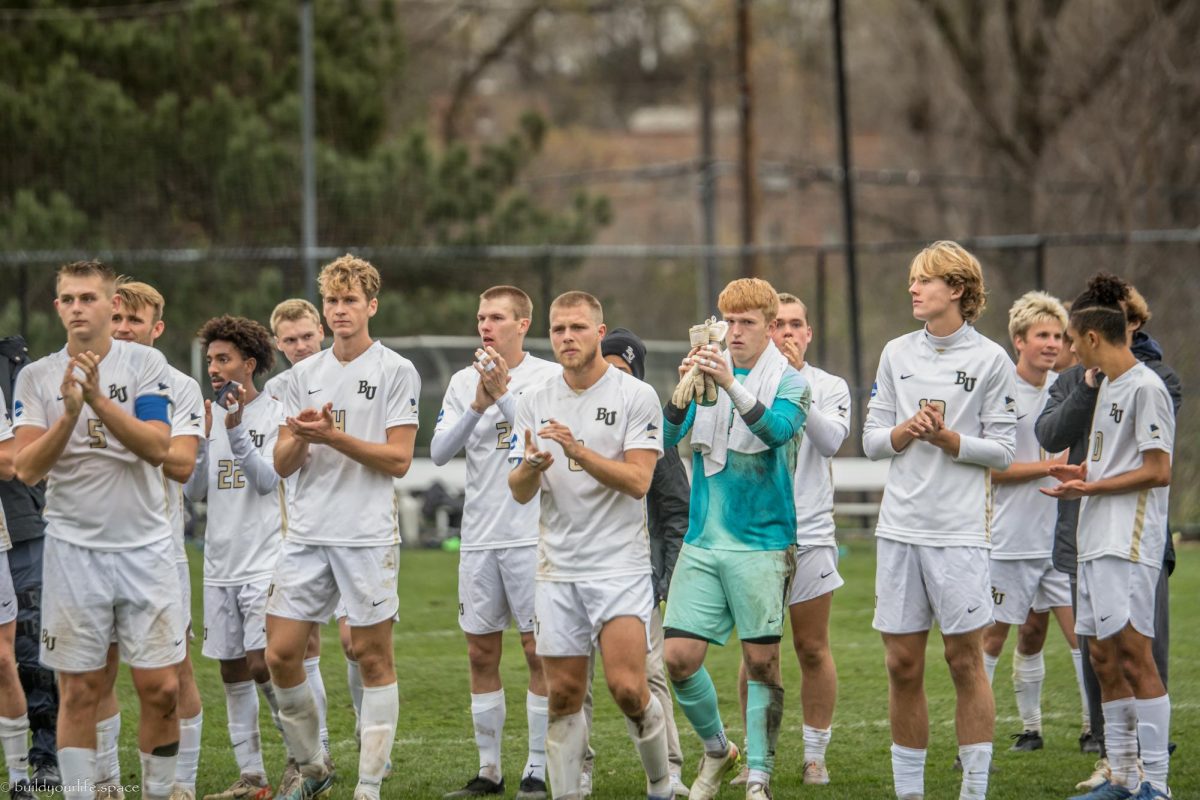






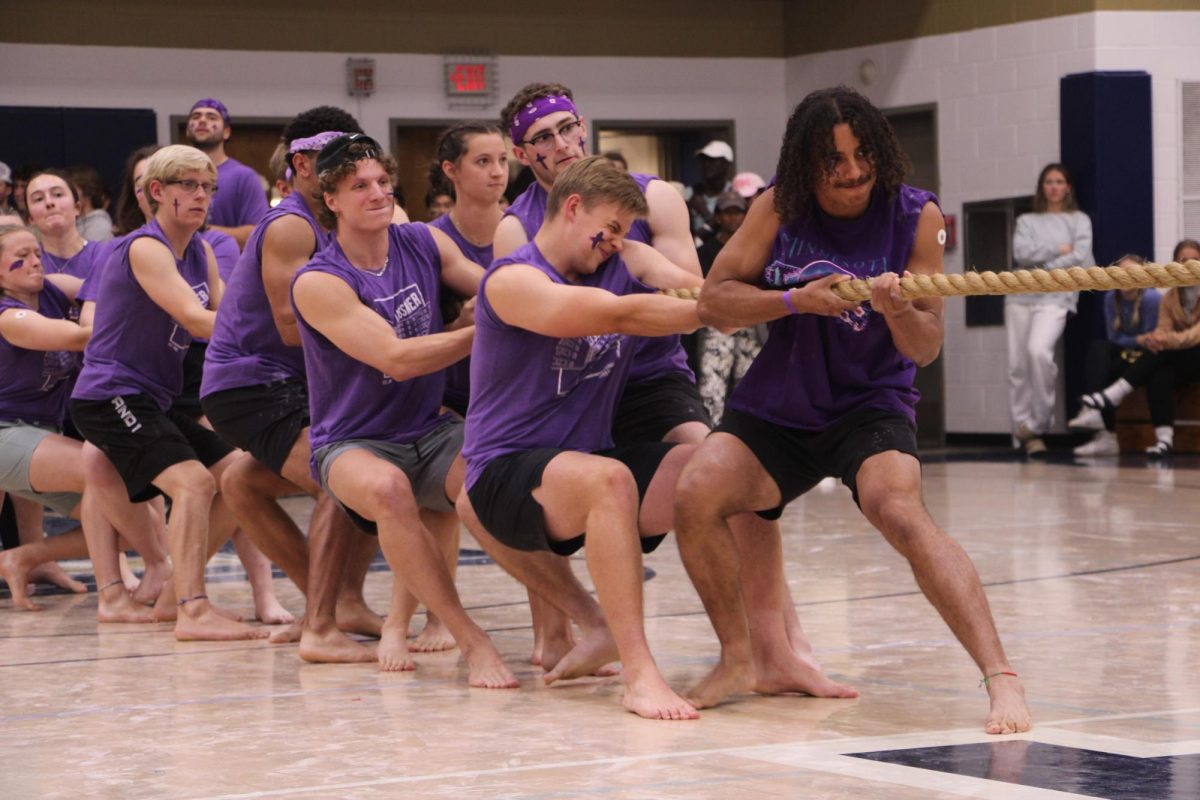
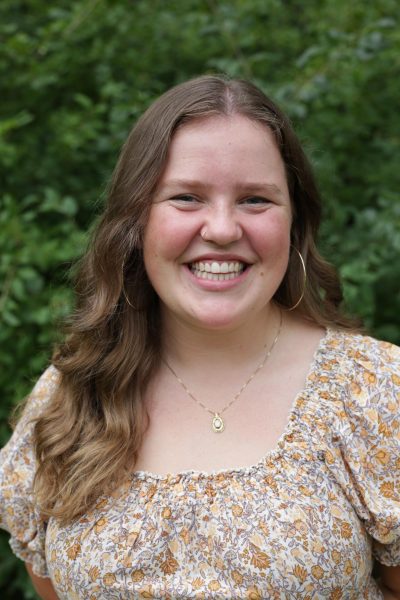
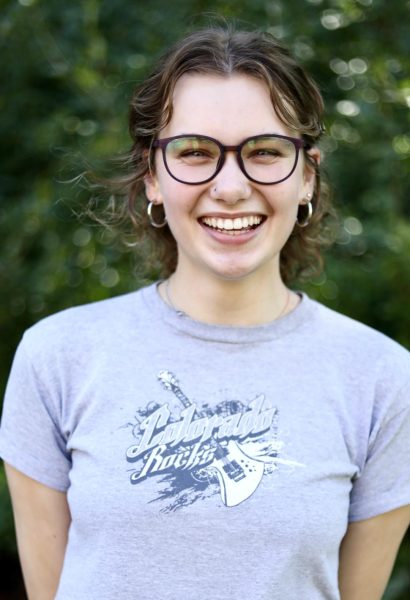
Student Experience • Jun 10, 2024 at 3:55 pm
Under the opinion section, there is a response post to this article.
Jason • May 14, 2024 at 3:01 pm
Thank you for this beautifully written and thoughtful article. The respect you showed the students (those who were named and those who chose to remain unnamed) and the respect you showed Bethel was incredibly admirable.
For a topic that can too often be a dividing line, you showed how belonging and discipleship are at the forefront and the core of our faith.
My prayers have been and continue to be for Bethel.